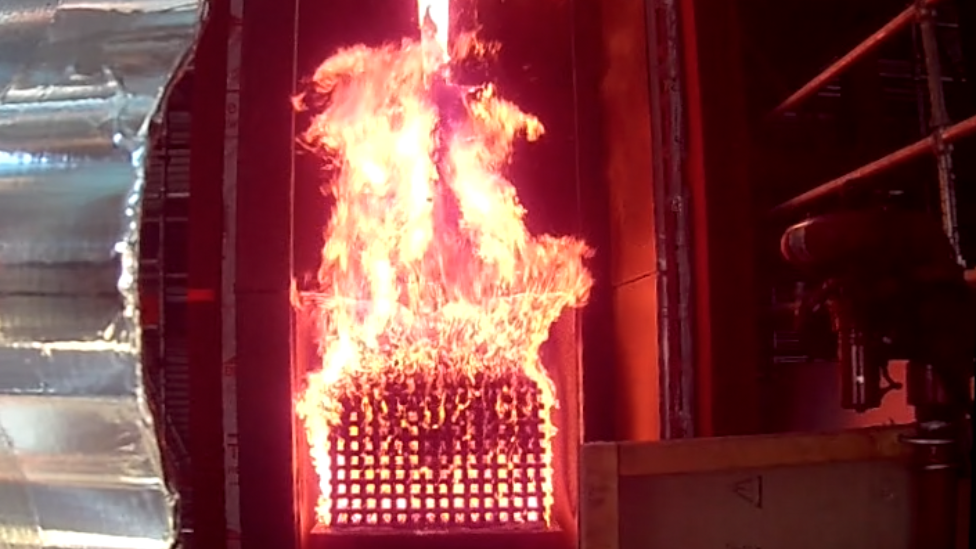Birmingham tower block cladding work could stall as funds run out
- Published
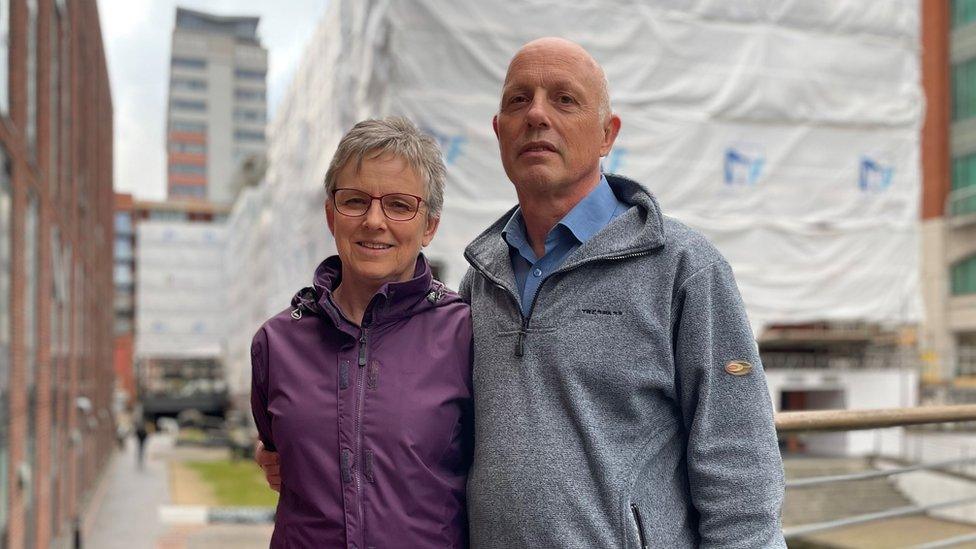
Katie and Jim Illingworth are struggling to meet the costs of cladding remediation works
Work to remove unsafe cladding on a tower block in Birmingham is at risk of stalling, residents say, in a stand-off over who should foot the bill.
Repairs have been required by law since 72 people were killed in the Grenfell Tower fire in 2017.
At Islington Gates on Birmingham's Fleet Street, homeowners have spent thousands of pounds on works, but funds are running out.
The government said developers should pay costs, rather than residents.
The construction industry has committed £5bn towards repairs, but at Islington Gates residents fear they might not benefit.
Built in the early 2000s, it is a so-called "orphan building".
Original developer Midlands and City Developments went into liquidation in 2007 and Miller Construction, which built the block, was bought out by Galliford Try in 2014.
As a result, it is unclear who now has responsibility to pay for the remediation work, which started last year.
Homeowners argue it should fall to Galliford Try, however the firm insists it has no obligation or responsibility to pay.
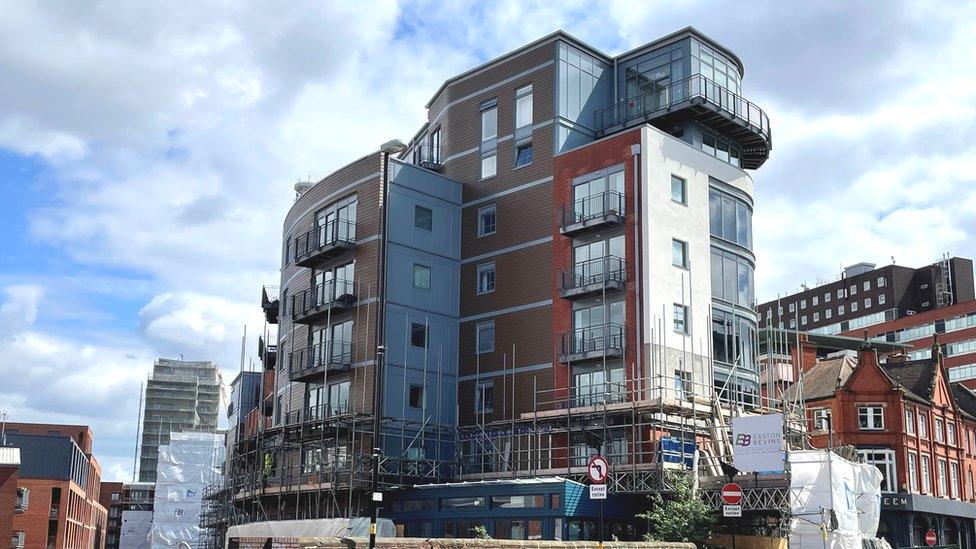
Sheeting which covered the building is being removed as unsafe cladding is replaced
"It gets very confusing," said Jim Illingworth, who lives in one of the 141 flats at Islington Gates with his wife, Katie.
"Who is responsible for paying the contractor? They're going to walk away if they're not getting paid."
Cladding - to improve insulation or improve the building's appearance - has been a common feature on the side of tower blocks across the country for years, but a combustible type was found to be responsible for the spread of the fire at Grenfell.
The cost of removing that is supposed to be absorbed by the owners of the whole building and the land.
However, until the government's guidance, in reality that has often been passed on to the owners of individual flats, or leaseholders.
Work has been completed on some of the flats at Islington Gates, but is not due to finish on the entire development before December at the earliest.
Mr and Mrs Illingworth have been left with spiralling bills.
Leaseholders originally agreed to meet 20% of the costs - to the value of about £2m - with the remainder covered by the government's Building Safety Fund.
The costs were due to be shared across the 141 flats, with residents living in larger flats expected to pay more. Mr and Mrs Illingworth were billed £10,000 for their one-bedroom apartment.
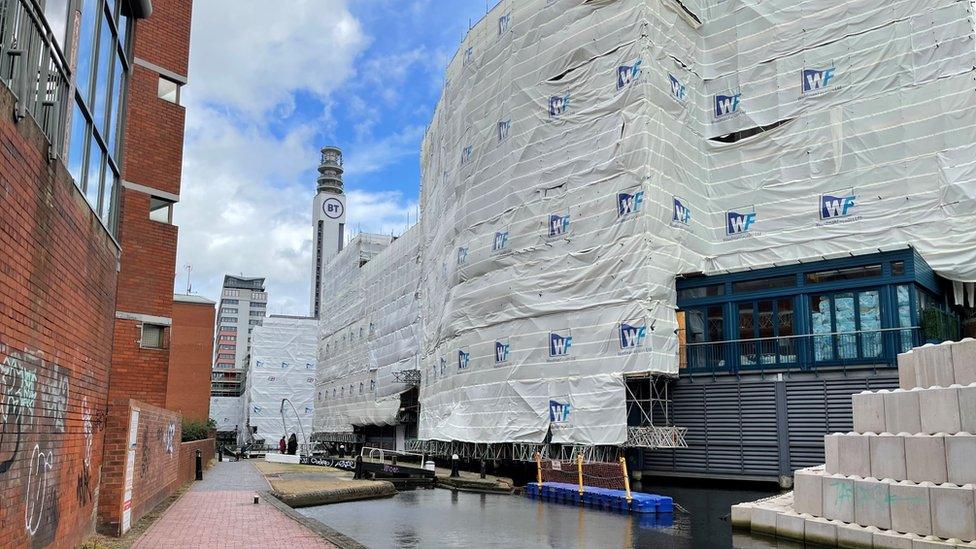
Plastic sheeting covered the entirety of the building for months
Since the government announced the onus of removing cladding should instead fall on developers, leaseholders have been unwilling to continue their payments, especially as the government said costs that had already been paid would not be reimbursed.
Already facing delays, work could possibly stall completely if a shortfall of about £1m is not found.
"If the developer says we're not going to pay, what happens?" Mr Illingworth asked. "It always seems to fall on the leaseholders."
In October, the BBC visited the block as remediation works were beginning. It meant the flats were covered in plastic sheeting - which still covers the majority of the development - as their protective, but combustible, exterior was chipped away.
It made for dark, cold and damp flats and leaseholders said they struggled with the financial and mental impact of living in those conditions for months on end.
"I don't know when it's going to end," Mr Illingworth said. "I really can't see the end of it in sight."
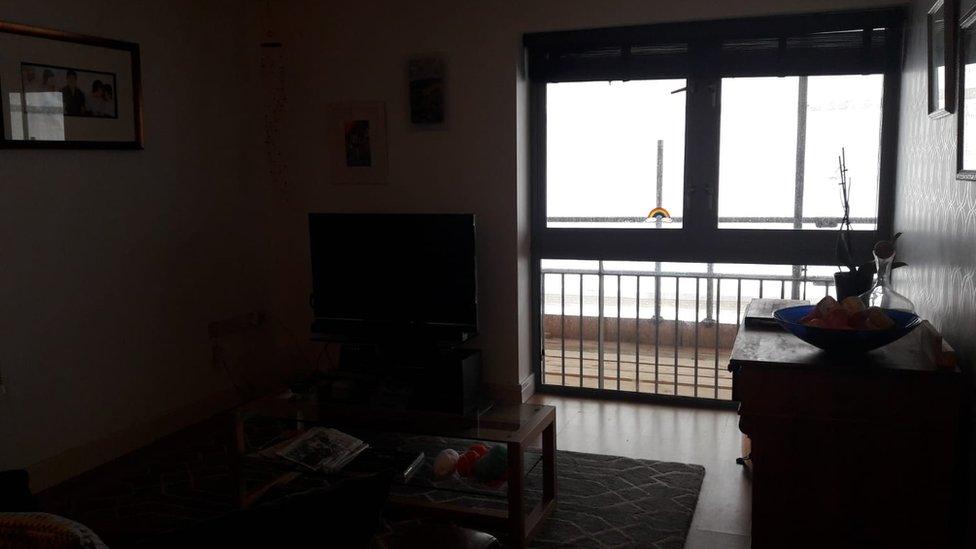
Mr and Mrs Illingworth's flat was cold and dark behind the sheet
The couple's MP, Labour's Shabana Mahmood, has called for Galliford Try to "make good on its responsibility and finally take the multimillion-pound burden off my innocent constituents who simply cannot afford it".
"They cannot roll the dice to decide whether or not they honour their legal commitments - and if they won't, it's down to the government to ensure leaseholders are fully protected," she said.
A spokesperson for Galliford Try said the firm was "fully in compliance with its legal obligations".
It said it fully appreciated leaseholders' concerns but that the original development works "were carried out in accordance with all of the requisite regulations in place at the time".
The Department for Levelling Up, Housing and Communities said it was taking steps to ensure buildings were safe and that building owners must comply with the law and not pass costs on to leaseholders.
A spokesperson added that in situations where a developer could not be identified, grant funding would be made available to meet costs of removing unsafe cladding.
It said so far, 45 of the UK's biggest housebuilders had signed its developer pledge and would contribute £5bn to fix unsafe buildings, however Galliford Try was not among the signatories.

Follow BBC West Midlands on Facebook, external, Twitter, external and Instagram, external. Send your story ideas to: newsonline.westmidlands@bbc.co.uk, external
- Published12 June 2022
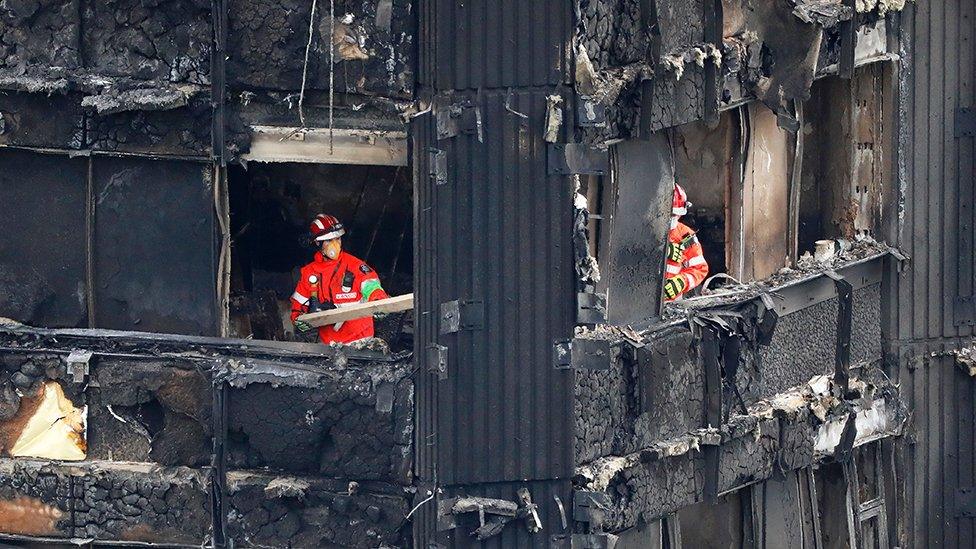
- Published13 April 2022
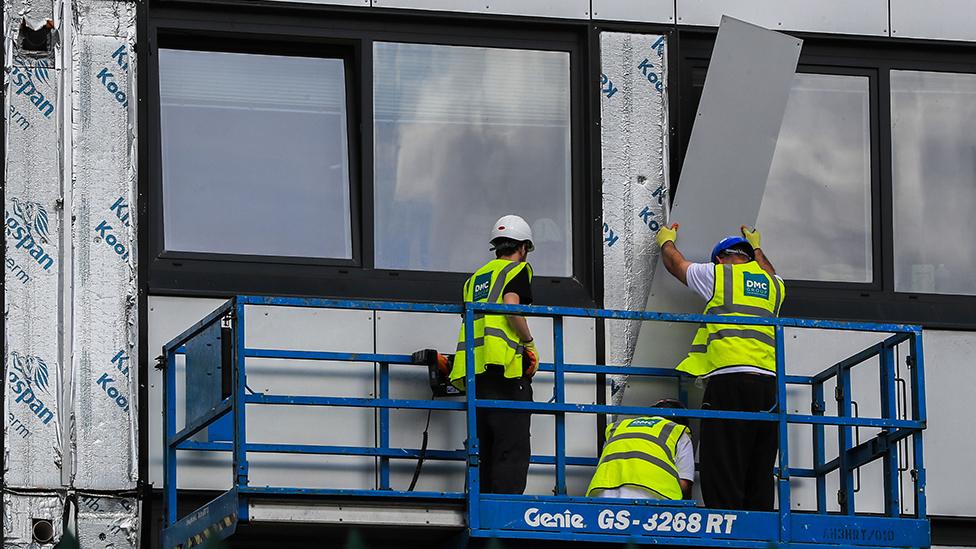
- Published2 March 2022
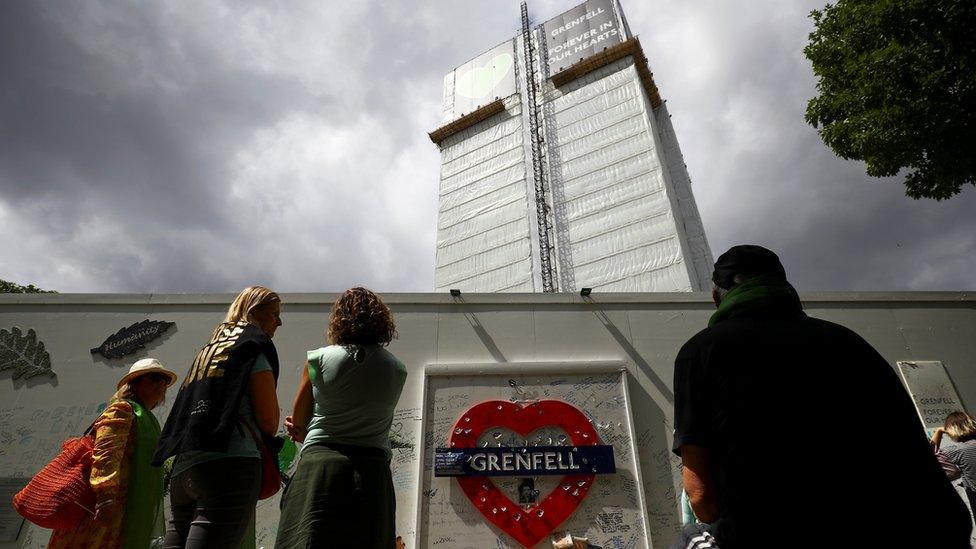
- Published13 January 2022

- Published10 January 2022
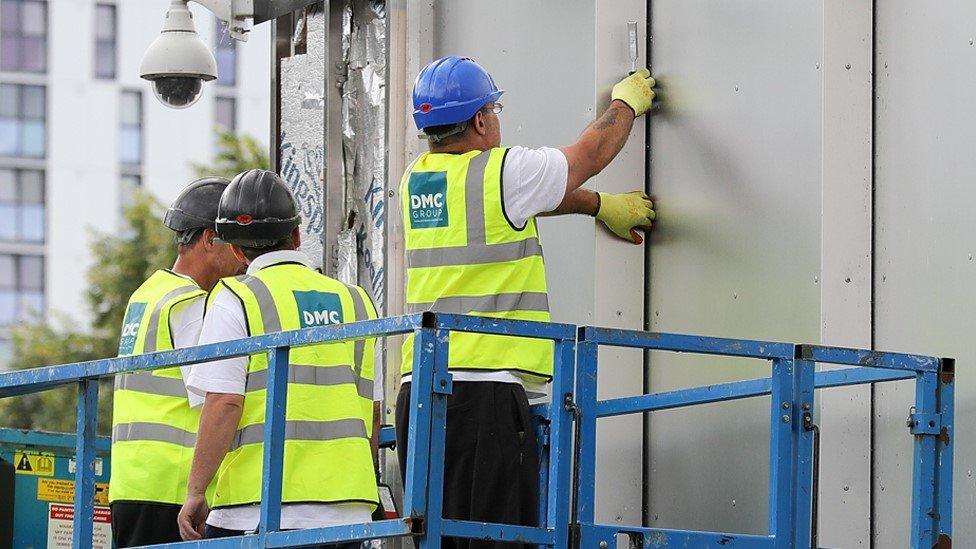
- Published8 January 2022
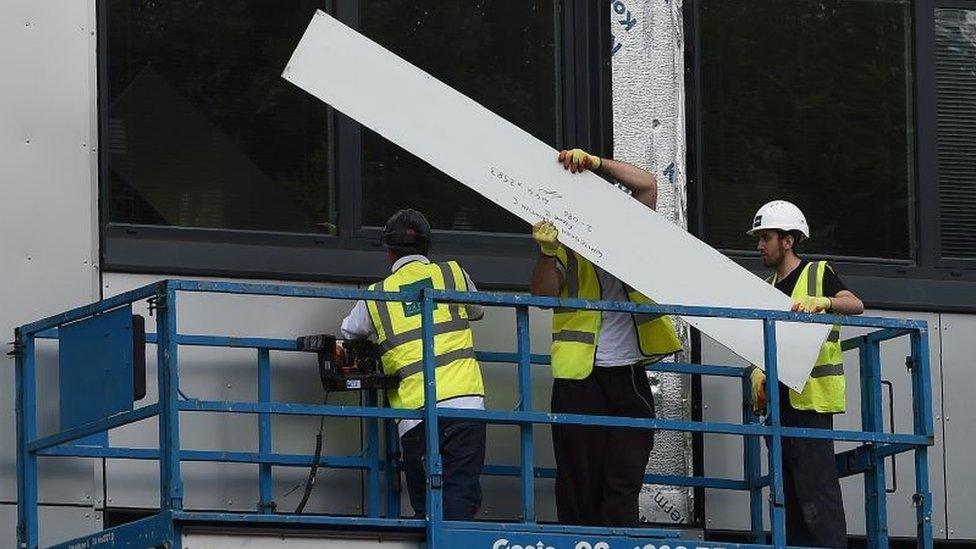
- Published18 October 2021
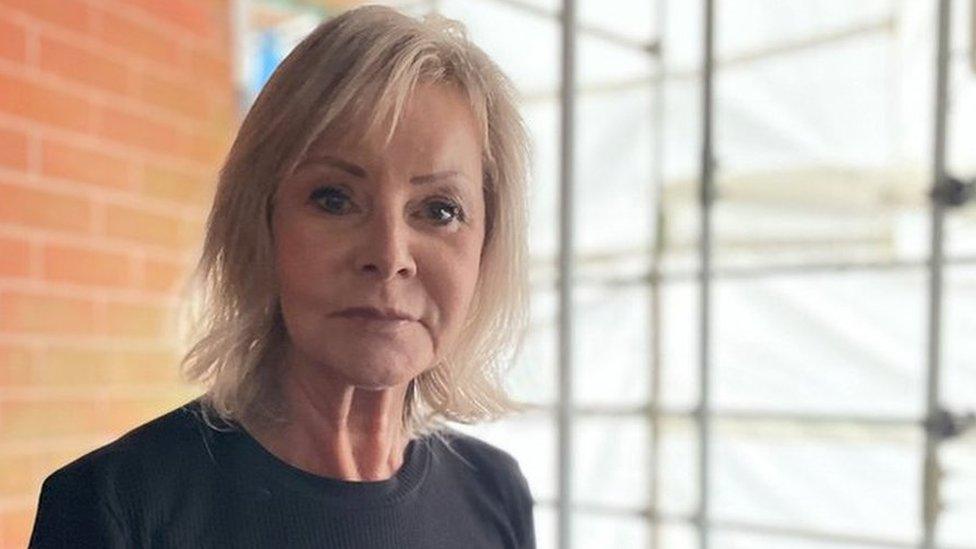
- Published10 September 2020
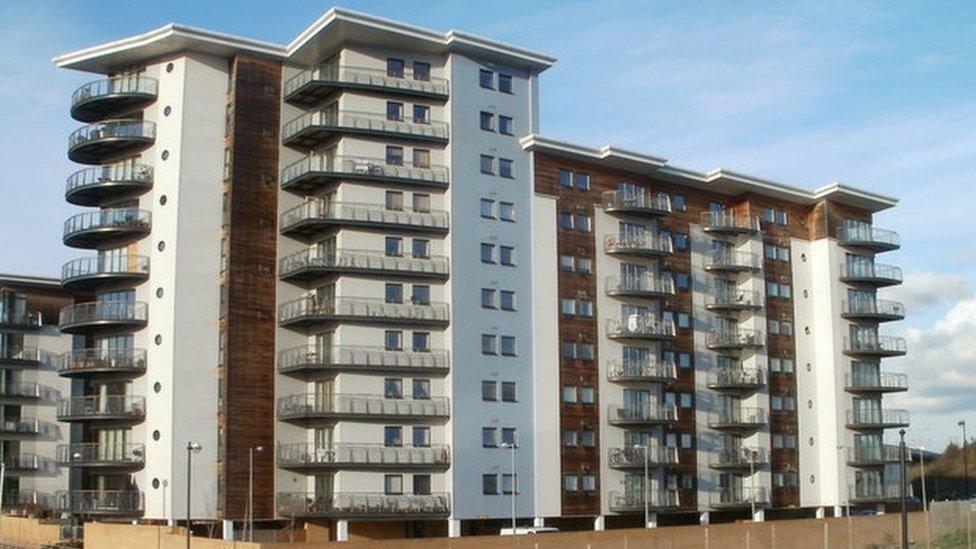
- Published8 September 2021
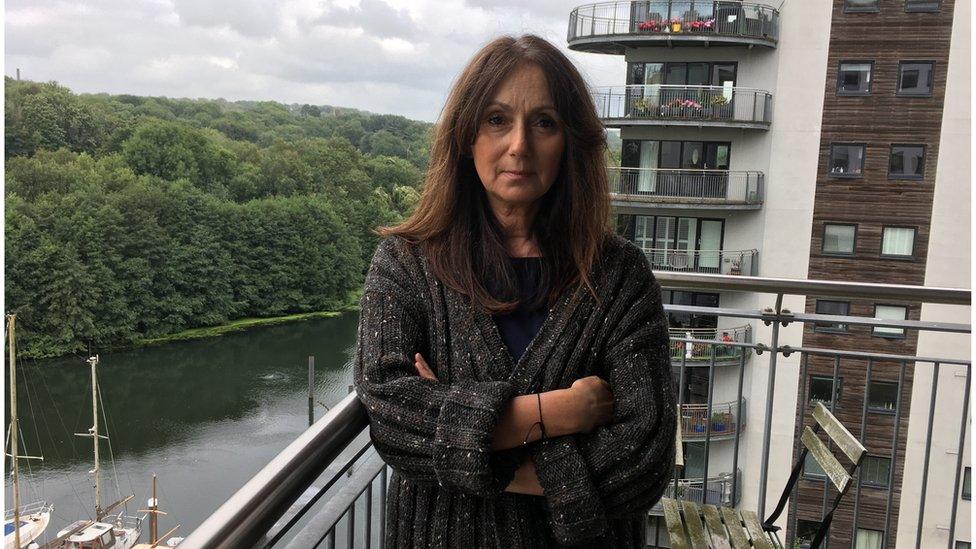
- Published24 August 2021
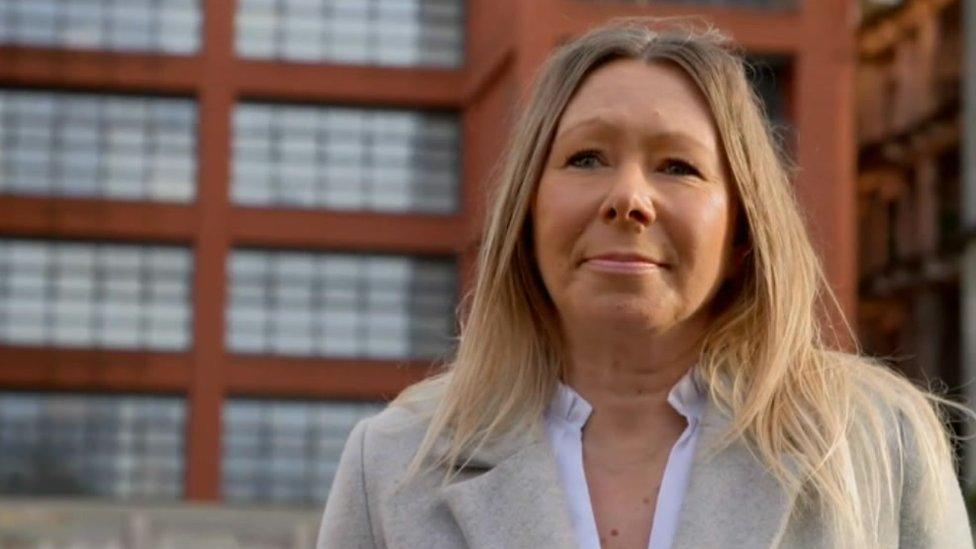
- Published1 August 2021
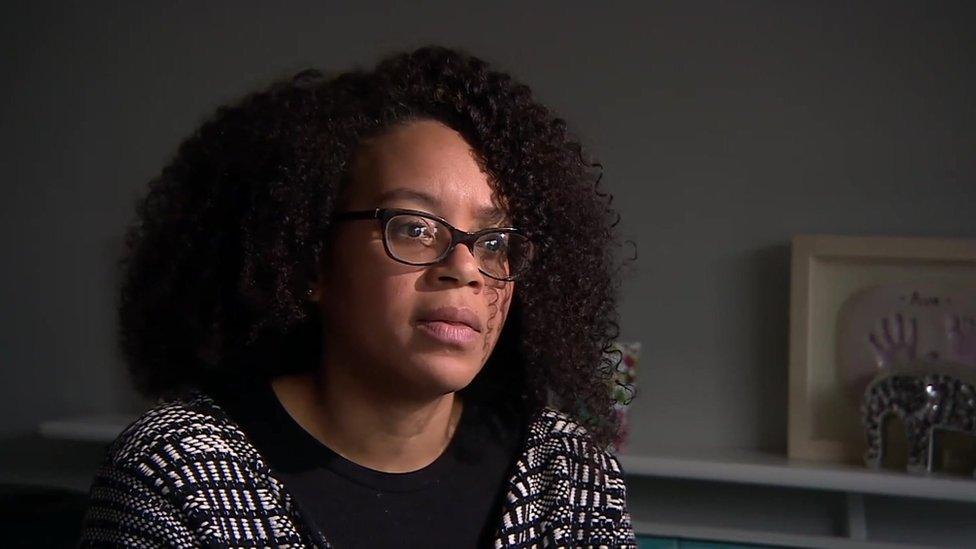
- Published22 July 2021
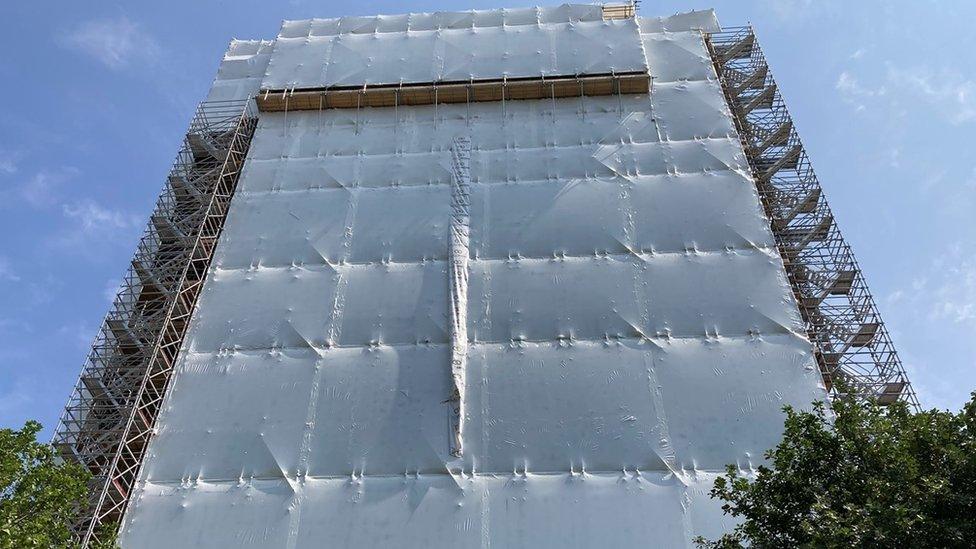
- Published21 July 2021
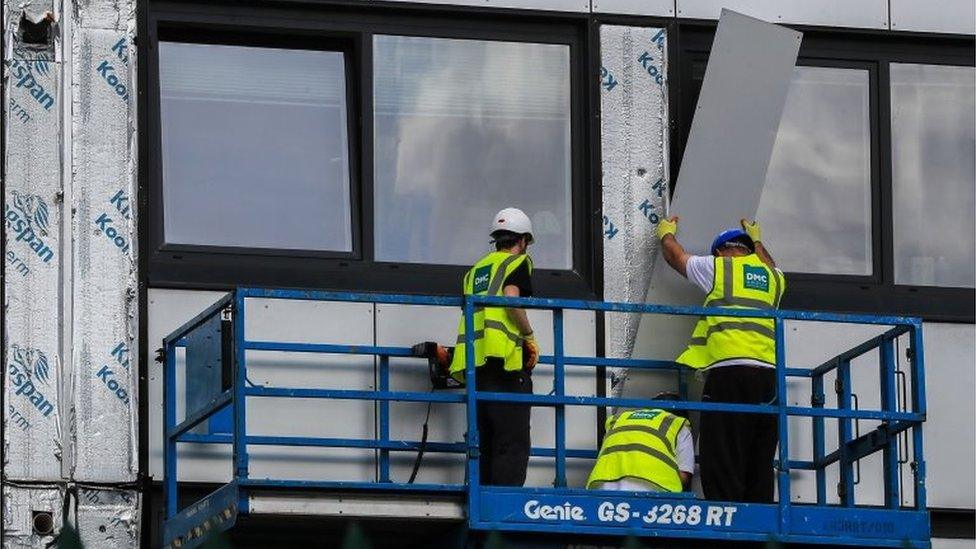
- Published13 June 2022
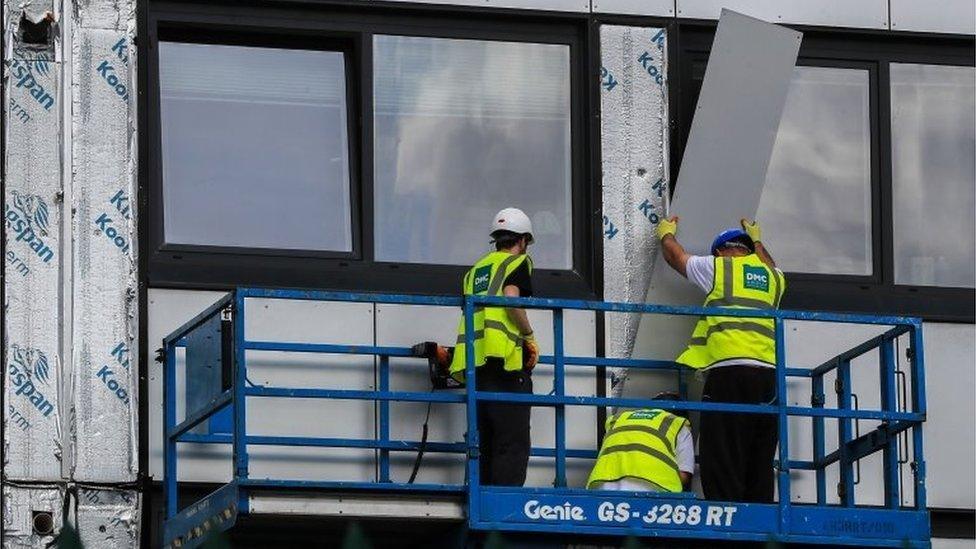
- Published1 February 2021
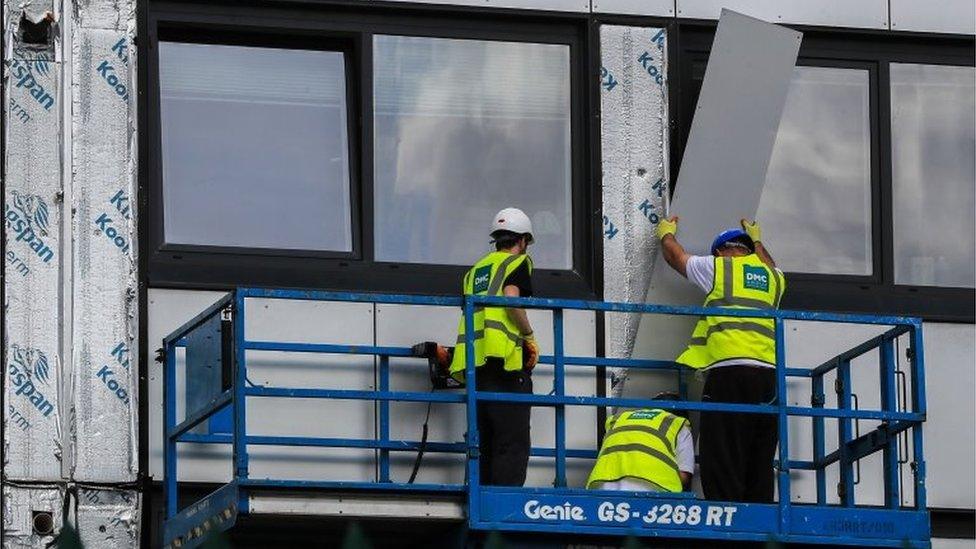
- Published22 January 2021
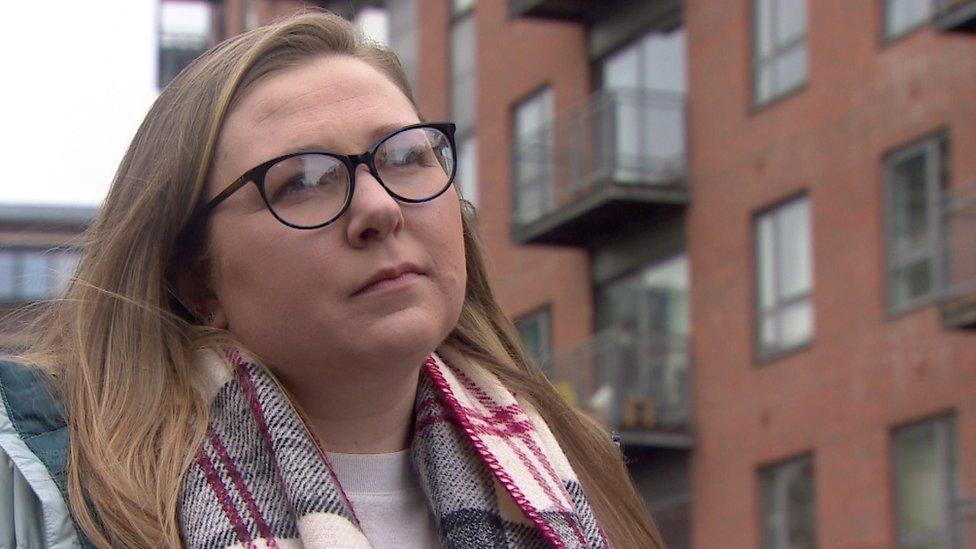
- Published17 December 2020
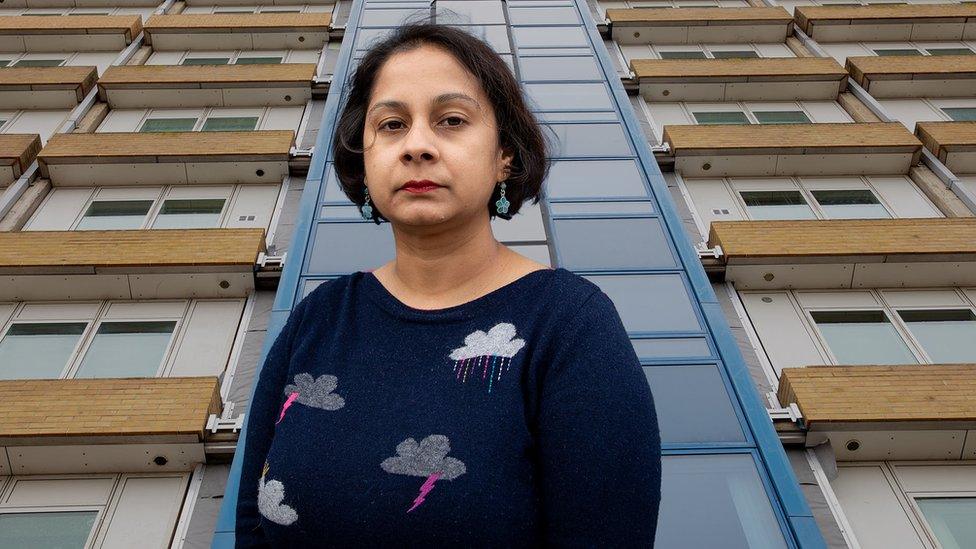
- Published24 November 2020
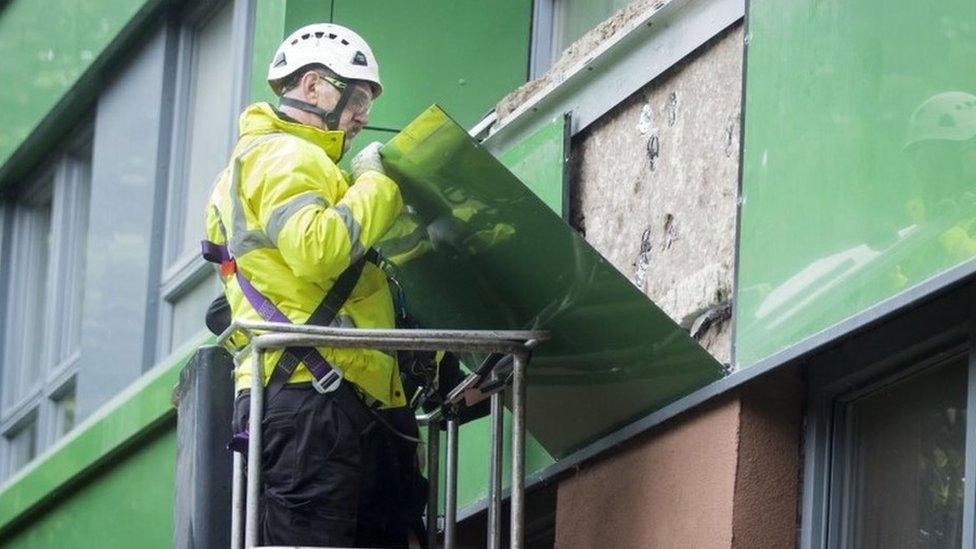
- Published30 March 2020
